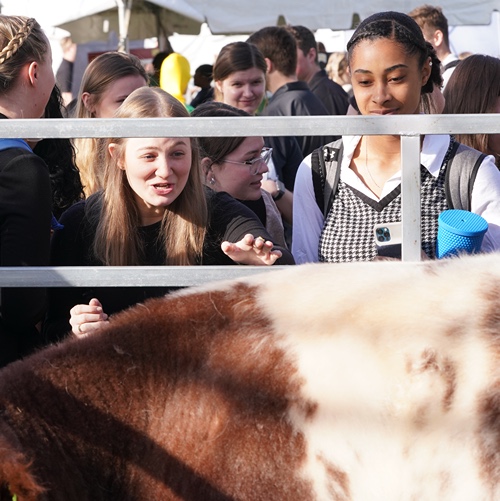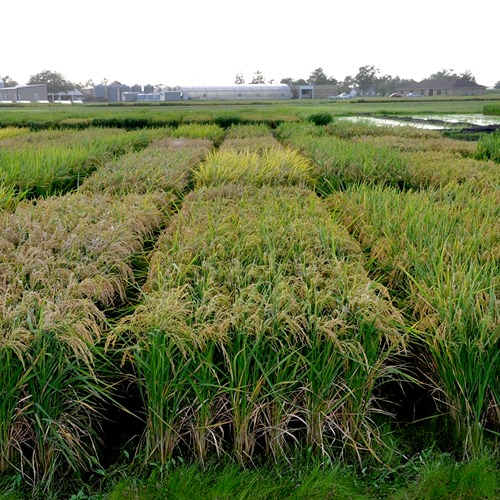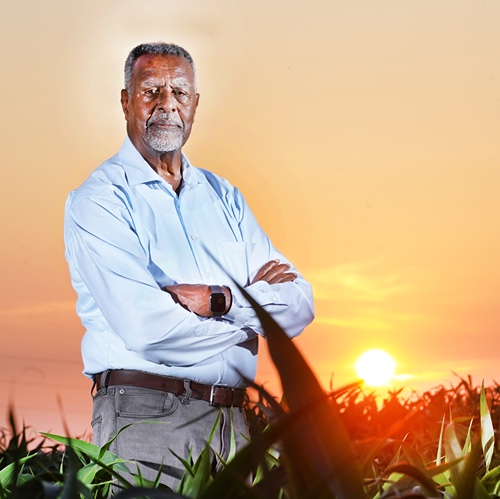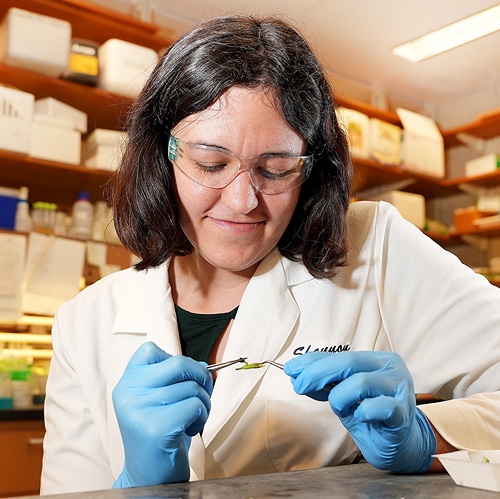Featured Stories

Homemade nut-based dairy analogs raise questions about bacterial risks
Many consumers know the food safety risks of dairy products, eggs and raw meat. But they are less...

Promoting beneficial gut microbes with whole-food dietary fiber
Americans generally consume about half the recommended daily dietary fiber requirement. These...

Purdue Ag Week to feature student-led activities celebrating agriculture
During the week of April 1-5, Purdue University’s College of Agriculture will host Ag Week...

Machine-learning model demonstrates effect of public breeding on rice yields in climate change
Climate change, extreme weather events, unprecedented records in temperatures and higher, acidic...

Ejeta to receive Purdue University’s highest award from President Chiang
Last October, 2009 World Food Prize Winner Gebisa Ejeta received the highest scientific honor...

Decoding the plant world’s complex biochemical communication networks
A Purdue University-led research team has begun translating the complex molecular language of...